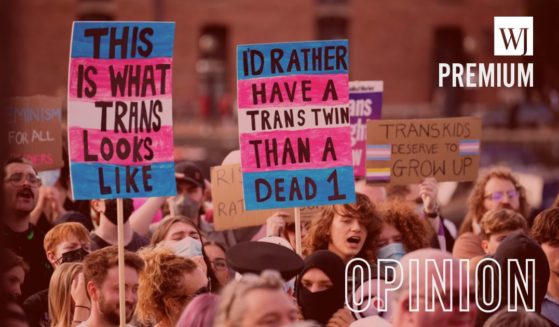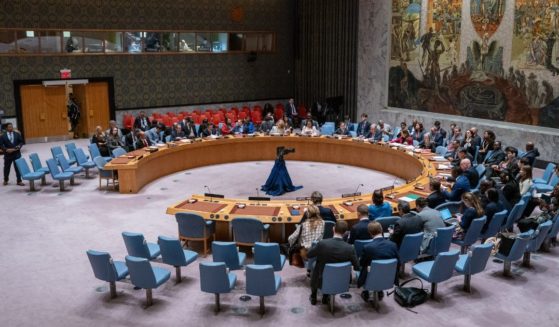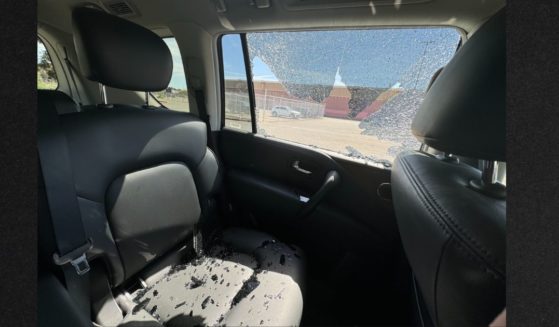Joe Biden Has a Dream to Eliminate Suburbs - It Soon Could Come True
If you like your suburb, you can keep your suburb.
Really, I’m just waiting for someone from President Joe Biden’s administration to come out and say that. Maybe it’ll even be Biden himself. It was 12 years ago on June 15 that his old boss, then-President Barack Obama, made the infamous “if you like your doctor, you can keep your doctor” pronouncement. Couldn’t he have done an anniversary callback?
If you’re a little lost, let me explain.
The Biden administration is adamant about ending what it calls “exclusionary zoning” — and planned to do it with his infrastructure-centric American Jobs Plan, the second bill in the legislative trilogy of massive spending outlays the Democrats plan to pass through the Senate through the budgetary reconciliation process.
“For decades, exclusionary zoning laws — like minimum lot sizes, mandatory parking requirements, and prohibitions on multifamily housing – have inflated housing and construction costs and locked families out of areas with more opportunities,” read a May 26 White House fact sheet on the American Jobs Plan.
“President Biden’s plan seeks to help jurisdictions reduce barriers to producing affordable housing and expand housing choices for people with low or moderate incomes. The American Jobs Plan will create a $5 billion incentive program that awards flexible and attractive funding to jurisdictions that take concrete steps to reduce barriers to affordable housing production.”
As USA Today reported in April, the push “could significantly increase local budgets decimated during the COVID-19 economic recession — an attractive proposal for some mayors who already support affordable housing policies but want cash to cover the cost of these projects.”
However, it noted that most “municipal governments have refused to eliminate zoning restrictions for decades, in large part because many taxpayers and developers don’t want it.”
There’s a reason: If you like being able to zone for low-density housing, which is generally why one moves to the suburbs in the first place, this is pretty unpopular stuff.
The administration has framed changes to zoning laws as a way to create generational wealth among minorities as well as reverse historic housing practices.
“The result of this sort of investment will be critical to increasing housing options for low- and moderate-income families,” Housing and Urban Development Secretary Marcia Fudge told USA Today.
The problem is that most communities, again, don’t like being subjected to a federal carrot-and-stick policy on zoning laws.
There are other issues involved as well. Not only do existing homes get devalued, but it also increases the demand for community resources such as schools without necessarily increasing the inflow of money by a commensurate amount.
And yet, with budget shortfalls due to the pandemic, this might seem attractive for communities without other options.
“This is just another example of the heavy handed federal government attempting to tell local communities what’s best for them,” Carey Baker, property appraiser for Lake County, Florida, told Breitbart News.
The question is whether the funding comes to fruition.
As you may recall, the president reached a deal on a scaled-back version of the infrastructure plan with a group of Republican senators who likely wouldn’t take to using $5 billion for the purposes of eliminating single-family zoning regulations. While the deal hasn’t been fully written yet, the framework for it has been released and so-called exclusionary zoning wasn’t listed.
However, that’s not going to stop other Democrats from trying to get zoning changes passed.
As Just the News pointed out, Senate Majority Leader Chuck Schumer of New York has said that whatever gets left out, the Democrats will try to pass on their own. If exclusionary zoning gets omitted, it could be passed that way, including in a reconciliation package Senate Budget Chairman Bernie Sanders is working on.
That package, the Vermont independent says, could cost upward of $6 trillion, enough to get $5 billion safely into it. Just the News asked his office whether he would support the plan and would include it in his reconciliation legislation; it responded that “discussions are ongoing” regarding what’ll be in the bill.
House Majority Whip James Clyburn was also contacted by Just the News to ask if he supported the exclusionary zoning measure.
“I have not read that bill,” said Clyburn, a South Carolina Democrat.
“We’ll see what happens in the final document. It will come to the House, and I’ll do my thinking between now and then, and I’ll take whatever action I think is necessary. So I’ll have to read that.”
However, Clyburn was the House sponsor of the HOME Act, a proposed 2019 bill that would tackle exclusionary zoning by denying HUD grants to cities that didn’t create what the Senate’s sponsor, New Jersey Democrat Sen. Cory Booker, called “an inclusive zoning strategy” in a news release.
“The need for affordable housing solutions is an epidemic in my state,” Clyburn said at the time. “The growing gap between wages and housing costs is a crisis that must be addressed. The HOME Act offers bold solutions to immediately ensure that cost-burdened families can afford their rent while taking steps to bring down rent for everyone.”
What were these “bold solutions”? They were more toward the stick end of the carrot-and-stick equation. According to real estate website Curbed, the bill would withhold $16 billion in federal funding if local governments refused to go along with eliminating “exclusionary rezoning.”
Mind you, if the Democrats eliminate the filibuster and decide to go on a legislating spree, there’s nothing to stop them from revivifying the HOME Act and using that as a vehicle to deal with zoning reform. If budget reconciliation remains the only way to get the Biden administration’s agenda into law, the $5 billion in grants are the best way to do it.
Either way, they’re coming for the suburbs.
And yet, remember the outrage when former President Donald Trump would talk about this? When he would talk about how Democrats wanted to “abolish” and “destroy” the suburbs?
The New York Times: “Trump Plays On Racist Fears About Low-Income Housing.” New York Magazine: “Trump’s Racist Urban Myth Hides His Suburban Failures.” Business Insider: “Trump leans into off-the-wall race-baiting in remarks about American suburbs as Biden’s electoral fortunes rise.”
Not once did he mention race — but apparently, the very impulse is racist.
Rest assured that Joe Biden will be actively calling to rezone the neighborhoods around his two homes. Yes, that’s right, homes. According to The Wall Street Journal, not only does he own a house in the upscale Greenville area of Wilmington, Delaware, estimated to be worth $2 million, he also has a vacation home in Rehoboth Beach, Delaware, purchased for $2.74 million in 2017.
If he likes his suburb, I’m guessing he can keep his suburb. Other Americans might not be so lucky.
Truth and Accuracy
We are committed to truth and accuracy in all of our journalism. Read our editorial standards.












